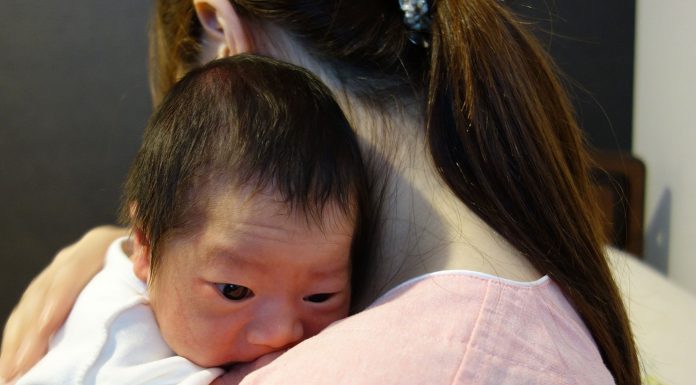Care workers with overseas nursing degrees were assessed as meeting the “health and wellbeing qualification requirement at Level 4”, says the New Zealand Qualifications Authority.
But Careerforce says workers also need to demonstrate they are culturally competent in New Zealand’s unique bi-cultural setting. So under its statutory role Careerforce has assessed care workers holding overseas nursing degrees as being at Level 3 for pay equity purposes until they are assessed as meeting those competencies.
Under the Care and Support Workers (Pay Equity) Settlement Act (2017) workers need to be deemed by Careerforce as having the equivalent of the Level 4 New Zealand Certificate in Health and Wellbeing (Advanced Support) to be eligible for the top pay rate under the historic $2 Billion pay equity settlement for care and support workers.
Filipino nursing leaders this week questioned why migrant nurses needed to do more study or assessment to be at the top of the new care worker pay scale. Monina Hernandez, president of the Filipino Nurses Association of New Zealand (FNANZ), said assessing overseas nursing degrees as the equivalent of a level three certificate was a “huge insult” to nursing education in not only the Philippines but the other four countries – India, South Africa, Australia and the United Kingdom – covered by the decision.
But others have expressed concern that Careerforce’s decision on foreign nursing degrees – which came out after the equity settlement came into affect on July 1 – had assessed the equivalency too high and added an additional cost for employers. INsite magazine reported that the New Zealand Aged Care Association initially advised its members to ignore the Careerforce decision but was now advising for staff to be transitioned to the appropriate pay band. Though NZACA still “strongly disagreed” with the way the change had been carried out.
One aged care employer, Chris Sanders of Sprott House, pointed out that if internationally-qualified nurses did complete the cultural competency units to reach the top pay rate they still couldn’t be used in dementia care because contracts required dementia staff to have completed four dementia units. “We should be able to use senior caregivers anywhere if we are paying ‘top rate’,” she said in an online comment.
In a press release on July 10 Careerforce chief executive Ray Lind said that NZQA had already assessed the level of nursing degree qualifications from the five countries but the press release did not specifically state what level that NZQA had assessed the degrees at. Instead the Careerforce press release said workers with degrees from the five countries had been assessed as having equivalency to the New Zealand Certificate in Health and Wellbeing (Level 3) and needed to complete two additional cultural competency unit standards (see details below) to be deemed to be at Level 4 for pay equity purposes.
Nursing Review approached the New Zealand Qualifications Authority for clarification over what advice they had shared with Careerforce.
NZQA responded in a written statement stating that it had recently assisted the Ministry of Health and Careerforce “in considering the qualifications of those care support workers working in the aged care sector, against the New Zealand Qualifications Framework (NZQF)”.
“NZQA advised that those who have nursing qualifications from the Philippines, India, South Africa, Australia and the United Kingdom, meet or exceed the health and wellbeing qualification requirement at Level 4 on the NZQF needed to work as care support workers in the aged care sector,” said the NZQA statement.
Nursing Review late yesterday (July 13) went back to Careerforce for clarification why the NZQA’s advice that workers with nursing degrees were at level 4 had not been made clear in the July 10 press release and why it had decided not to follow the NZQA assessment advice.
Ray Lind responded in a statement saying that Careerforce had been assessing the degrees not against the NZQF levels, like NZQA had done, but against the specific qualifications outlined in the Act for pay equity purposes, which were the New Zealand Certificates in Health and Wellbeing levels 2, 3 & 4.
“While NZQA has determined these international nursing qualifications to be equivalent to at least Level 4 of the NZQF, Careerforce is assessing against different criteria,” said Lind. Careerforce has been appointed by the Government to be the industry training organisation (ITO) responsible under the Act to assess equivalency of qualifications against the New Zealand certificates.
On July 14 Careerforce issued an additional press statement saying that a “deep understanding of the bi-cultural setting of New Zealand’s health system must be demonstrated by care and support workers” with international nursing degrees if they wished to gain equivalency to the Level 4 New Zealand Certificate.
It included a statement that NZQA had determined, prior to the passing of the Act, that the nursing degrees from the five countries were “credible qualifications that were equivalent to at least Level 4 on the New Zealand Qualifications Framework (NZQF)”.
But because Careerforce’s role was to determine whether the overseas degrees were equivalent to the Health and Wellbeing qualifications for pay equity purposes it had noted that the Level 4 certificate required the graduate to understand the history of Māori as tangata whenua and a commitment to bicultural principles.
He said Careerforce could not “reasonably say” that someone with an international qualification had knowledge and experience of these cultural competencies so it was requiring those workers to do the two cultural competence to ensure they had the appropriate skills needed for a care and support role within the unique bi-cultural setting of New Zealand’s health system.
Lind said the ITO had developed the health and wellbeing qualifications in close consultation with the sectors involved and they reflected the skills and competencies deemed necessary for the kaiawhina workforce.
“To not respect that and not require the cultural competency units would be doing a disservice to the sectors we service and the skills and knowledge they identified as necessary for their staff.”
He said it did recognise that there were care and support workers holding international nursing degrees from the Philippines, India, South Africa, Australia and the United Kingdom who had been working in the aged care, disability, home and community support sectors for quite some time and “already display those cultural competencies”.
He said those workers may apply for Recognition of Prior Learning (RPL) or Recognition of Current Competency (RCC) and may be assessed as having equivalent to the Level 4 Certificate, “providing they meet the outcomes for two specific unit standards around cultural competency and biculturalism, or, they complete the assessments in the following unit standards to be deemed to have equivalency to that level qualification for pay equity purposes”.
On the Careerforce website it says to move up to the equivalent to the Level 4 New Zealand Certificate in Health and Wellbeing (Advanced Support) for pay equity purposes the international nurses would have to complete assessments in the following unit standards:
- (28989) Apply strategies to support cultural diversity and
- (28543) Describe culturally safe Māori operating principles and values and their application in a health or wellbeing setting.
A Careerforce spokesperson said the enrolment fee for the two unit standards was $85 and, while it was hard to determine how long it would take to meet the workplace-based competency standards, it was likely on average to take trainees less than six months.
NB: This article was updated on July 19 to include NZACA and employer comment.























What about Foreign Trained Nurses who already achieved 5 NZQA credits on Unit Standard 6422? If they are saying that those 2 modules are required so that FTN will have better understanding of NZ bicultural Health Setting and Maori Principle, why cant FTN who already did 6422 be recognised as level4 if the context are the sane..